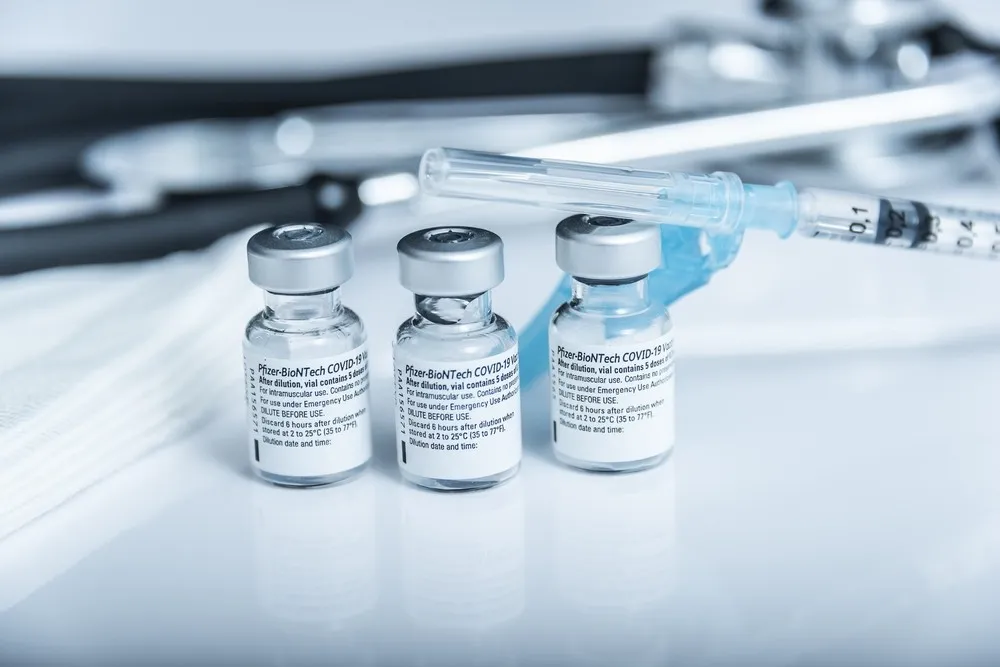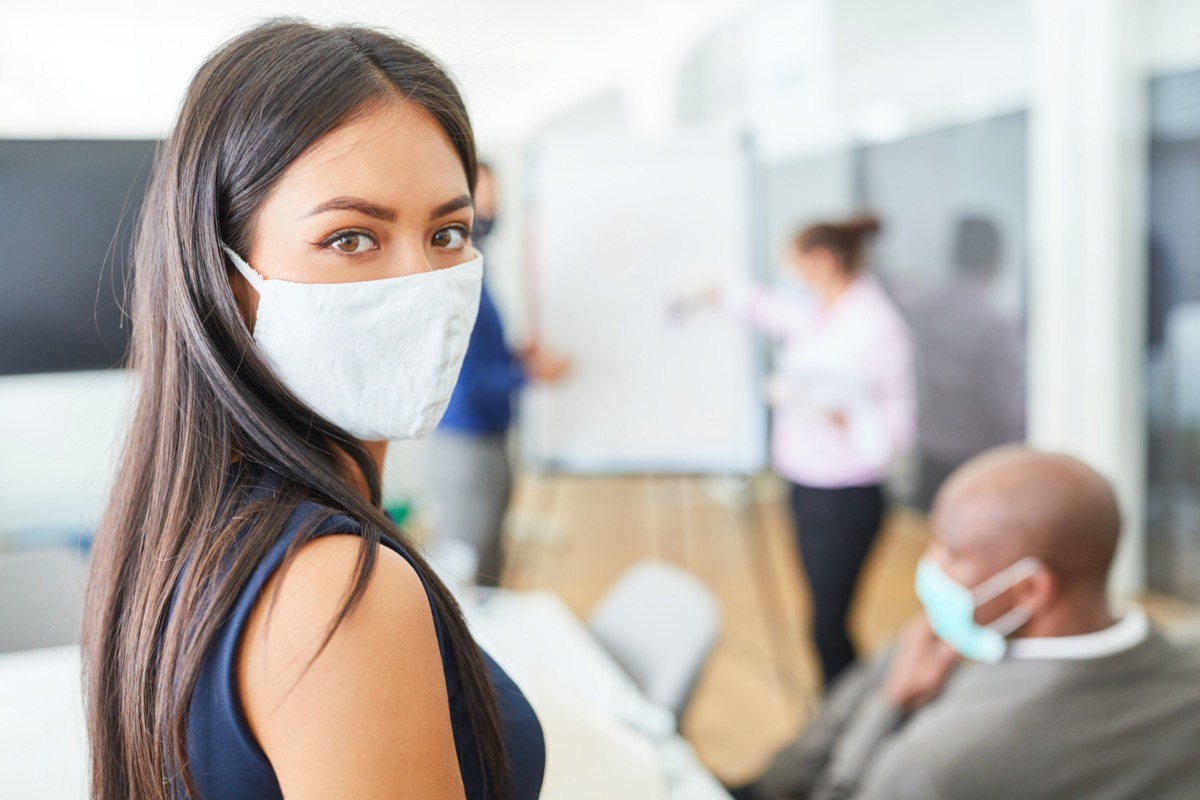COVID Surge May Bring New Vaccine Early: What You Need to Know

COVID-19 is spreading so fast, the FDA may greenlight updated vaccines earlier than expected, reports CNN. The concern is real: COVID cases are “very high” in 27 states, according to wastewater levels monitored by the CDC, and the summer wave is the biggest in two years. With school back in session, the number of cases may rise even more. “Now is the time to get a dose with this surge,” Dr. Michael Osterholm, director of the Center for Infectious Disease Research and Policy at the University of Minnesota, told the network. And yet the newer vaccines are not available quite yet. Here’s when they could be available and what experts say about what vaccine you should get when.
RELATED: COVID Levels Are “Very High” in These 27 States
When the New Vaccines Might Arrive

COVID vaccines are available now but a new formulation is scheduled to come this fall—or potentially as soon as this week. “The agency is expected to greenlight updated mRNA vaccines from Moderna and Pfizer/BioNTech that target a strain of the virus called KP.2, said the sources, who declined to be named because the timing information isn’t public. It was unclear whether the agency simultaneously would authorize Novavax’s updated shot, which targets the JN.1 strain,” reported CNN this week. As to when—CNN said a spokesperson for the FDA only offered that the agency “anticipates taking timely action to authorize or approve updated COVID-19 vaccines in order to make vaccines available this fall.” Last year’s new formulations got FDA approval on September 11th. The vaccine makers say their formulations could be available just days after approval, says CNN.
Why COVID is Spreading Quickly Now

A recent CDC report shows that the JN.1 variant, including strains collectively known as “FLiRT,” was the dominant COVID-19 variant between July 21 and August 3, 2024. COVID-19 cases are rising in several states, while the CDC is monitoring the situation by testing wastewater for the virus. As of August 6, infections are increasing in 21 states, while declining in Nevada, Hawaii, and Connecticut.
Experts like Dr. Ashish Jha note that the combination of this new variant and waning immunity has led to a significant rise in cases.
What the CDC Says About Getting Your Vaccine

The CDC recommends the 2023–2024 updated COVID-19 vaccines from Pfizer-BioNTech, Moderna, or Novavax to protect against severe illness. Everyone aged 5 and older should receive one dose of the updated vaccine, while children aged 6 months to 4 years may need multiple doses. Those who are moderately or severely immunocompromised and people aged 65 and older may require additional doses. Staying up to date with these vaccinations significantly reduces the risk of severe illness, hospitalization, and death from COVID-19. Vaccine recommendations will continue to be updated as needed. See the CDC’s charts for your specific situation.
If You Have Recently Had a Confirmed Case of COVID

The CDC says: “If you recently had COVID-19, it’s important to stay up to date with your vaccines, though you may consider delaying vaccination by three months due to a lower risk of reinfection shortly after recovery. However, factors like your personal risk of severe disease, the risk to close contacts, local COVID-19 levels, and the predominant variant in your area might prompt you to get vaccinated sooner.”
RELATED: You May Want to Pull Out Your COVID Mask When Traveling
Hospitalizations and Deaths are Low, but Long COVID Remains a Risk

Despite the rising cases, things are different than at the height of the pandemic. “The good news is that given the substantial accumulation of protection from past infections and vaccinations, the two most serious metrics—emergency department visits and deaths—have not shown similar rises. The weekly percentage of emergency department visits with a COVID-19 diagnosis is low and similar to last year’s summer wave. Deaths are likewise low, though they are still only provisional counts for the most recent weeks,” reports Ars Technica. Yet the virus can damage you in ways that are hard to quantify, and can lead to Long COVID, a chronic illness. Long COVID symptoms can include fatigue, brain fog, shortness of breath, and lingering muscle pain that may never go away.
How to Stay Safe

Health officials continue to stress the importance of getting vaccinated, especially as new variants challenge the effectiveness of last year’s vaccines. With many regions experiencing extreme heat, people are spending more time indoors, further fueling the spread. Wear a mask in high-crowded indoor spaces if you feel at risk or are immunocompromised. The summer wave is expected to peak soon, but vigilance remains key as the virus continues to evolve.